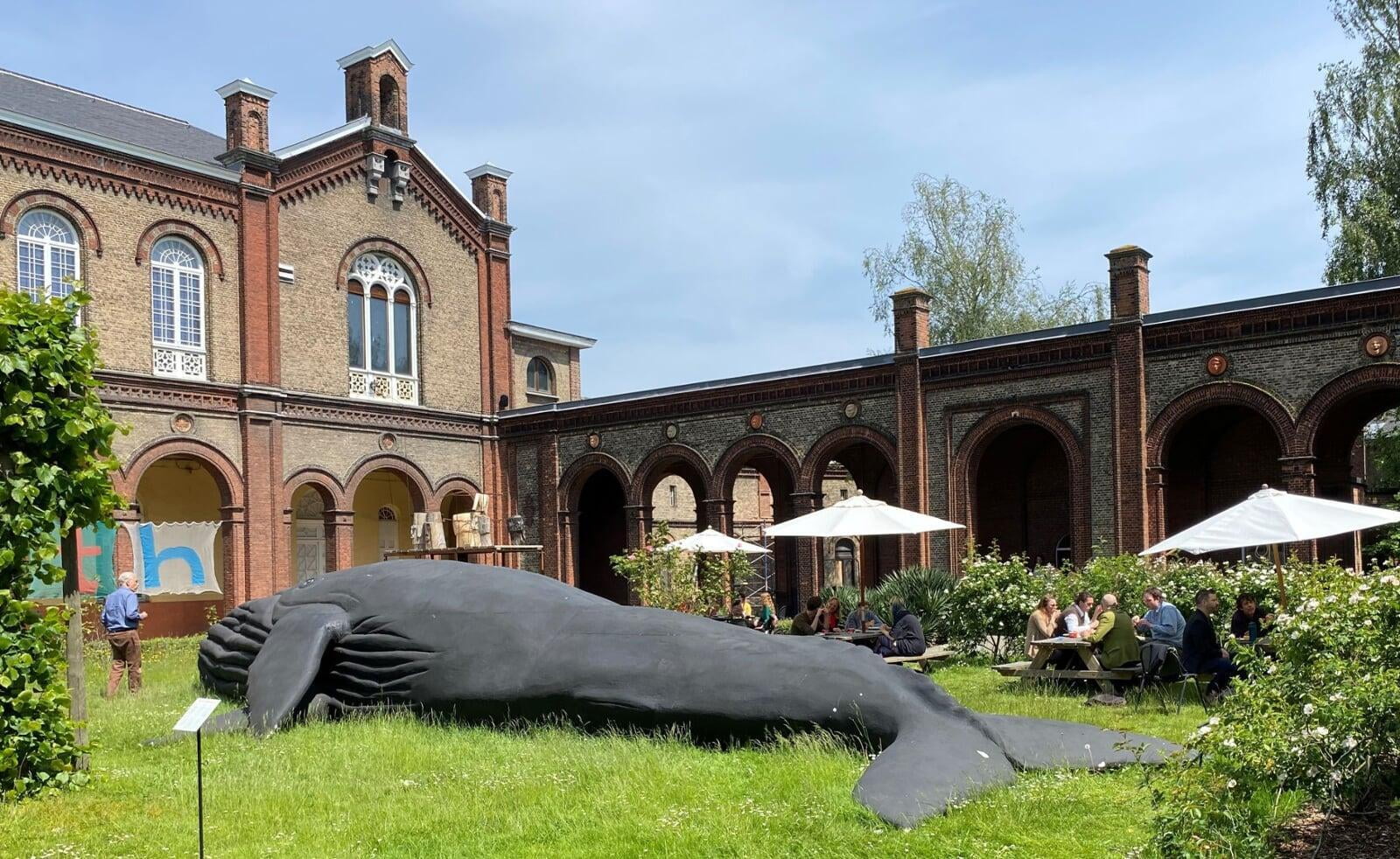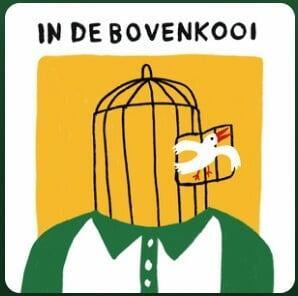Too mad to be true II - The promises and perils of the first-person perspective
Too mad to be true II - The promises and perils of the first-person perspective

May 27-28, 2023, Ghent (Belgium) + online
In May we held the second Too Mad To Be True conference that was dedicated to exploring the various links between philosophy and madness. The atmosphere was vibrant and it initiated new ways of thinking and communicating around issues of madness and philosophy. The central theme was both relevant to philosophical and mad theories and practices: ' The promises and perils of the first-person perspective'. The conference was hybrid: both in person, in Ghent, Belgium, as well as online.
Schedule and final program
Schedule with all speakers, see here.
Final program including all abstracts and bio's, see here.
Josh Richardson, registered psychotherapist practicing in Canada (Ontario), wrote an extensive review sharing his highlights from the conference, see here.
All presentations
The videos of the presentations with a link are available. One password to watch all videos is on request, please e-mail info@psychiatrieenfilosofie.nl
The videos of the presentations with a link are available. One password to watch all videos is on request, please e-mail info@psychiatrieenfilosofie.nl
Organisers
Jasper Feyaerts (Ghent University), Bart Marius (director of museum Guislain in Gent) and Wouter Kusters (Foundation for Psychiatry & Philosophy) - Welcoming & general introduction to the conference
Robert Chapman (Senior Lecturer in Education at Sheffield Hallam University) - Class Consciousness, Elite Capture, and Mental Health
Sam Fellowes (Lecturer in Philosophy at the University of Lancaster) - How the lived experience of experts-by-experience relates to the abstract nature of science
Phoebe Friesen (Assistant Professor in the Biomedical Ethics Unit at McGill University) - Psychosis and Psychedelics: Historical Entanglements and Contemporary Contrasts
Alastair Morgan (Senior Lecturer Mental Health/ Critical Theorist at the University of Manchester) - Interpretation as attention to difference
Elizabeth Pienkos (Assistent Professor in Psychology at the Clarkson University, New York) - On the understandability of psychosis: Pushing the limits of phenomenological psychopathology
Richard Saville-Smith (Independent scholar at the Isle of Skye) - Resisting the ambivalent collapse from certainty to despair
Angela Woods (Professor of Medical Humanities at the Durham University) - First-Person Perspectives: Questions of Form
Other speakers (in alphabetical order by last name)
Lisa Archibald - Experiential wisdom and academic Mad Studies
Anna Bortolan - Concealing Narratives: On the Difficulty of Accessing the First-Person Perspective (presentation will not be available)
Mollie Cornell - Medical decision-making and the mad first-person perspective
Willem Daub - Phenomenology of Thinking & Neurophysiology
Florestan Delcourt - Horizon and Danger of Literature in Clinical Phenomenology: Louis Lambert’s case
Lotte Dijkhuis - What is the nature of subjective experience in various forms of non-madness (presentation will not be available)
Cynthia Dorrestijn and Elizabeth Pienkos - Birth of a mother: Uncovering our postpartum experiences
Janette Dinishak - A rare experiment in concept formation: The Creation of a Language for Describing Autistic Experience
Istvan Fazakas and Mathilde Bois - The Institutions of the Bodily Self. Depersonalization and Cenesthopathies
Anne-Marie Gagné-Julien - Why Should We Include People with Lived Experience in the DSM Revision Process? Ethical and Epistemological Arguments in Tension
Sarah Golightley - Too Bad to Be True: The ‘troubled teen industry’ and the lived-experience-expert as captor
Alke Haarsma-Wisselink - From Mastery to Mystery in Psychosis Inquiry
Edward Harcourt - What is Expertise by Experience?
Veronica Heney - “Am I going to see myself?” Recognition, relationality, and subjectivity in identification with self-harm in fiction (presentation will not be available)
Sofia Jeppsson and Paul Lodge - The allure of madness
Simona Karbouniaris - Professionals’ lived experiences: Towards a transformation of services
Grietje Keller - Identity politics for Mad Studies and Mad activism
Kathleen Lowenstein - Critical Perspectives and Clinical Ethics:Interventions from Mad Studies
Ferdy Marysse - Kant with Chaos: from ‘a priori’ to ‘I’
Edith Mayorga - The problem of diagnosis. The Way of Tao (the inner voice)
Valeria Motta and Michael Larkin - Contextualising and moderating first and second person claims with third person insights
Catarina Pombo Nabais - Deleuze and the a-subjectivity of madness
Eddo Rats - Scientific first person perspective
Hilda Reilly - Her own story, in her own words. Freud’s patient Anna von Lieben answers back (presentation will not be available)
Joshua Richardson - The Limits of the First Person and the Boundaries of Psychotherapy
Arthur Sollie - Self presupposes self-disorder
Lucienne Spencer, Roxana Baiasu and Rosa Ritunnano - Presentation and Workshop about the Renewing Phenomenological Psychopathology Project
Anna Sterna and Marcin Moskalewicz - Borderline temporality - between lived experience and third-person conceptualization. Toward evidence-based phenomenological analysis
Radoslaw Stupak and Pesach Lichtenberg - Putting the psyche back into psychopharmacology: Is a First-Person Psychopharmacology possible?
Robert Swier - The birth of the Homo Paradoxalis
Robyn Thomas - Bridging Divergent Realities through Film and Photography: Valuing “Living” Experience through visual methods (presentation will not be available)
Maciej Wodziński and Marcin Moskalewicz - Not Enough of the ‘Mad’. Experiential Knowledge and Temporal Experience in Autism Spectrum Condition.
Podcasts

During the conference, Laura Keulartz and Rosa Rooduijn were recording their podcast 'In de bovenkooi'. They interviewed two speakers at Too mad to be true, Cynthia Dorrestijn on her experiences during motherhood in relation to psychosis sensitivity (in Dutch) and keynote speaker Richard Saville-Smith about acute religious experiences (in English). Listen here (Spotify) or here (Apple Podcasts)
Background
Subjectivity and the first-person perspective have become central and popular ideas in various disciplines, such as philosophy, psychiatry, psychology and in psychopathological research. This popularity is due to several reasons. Firstly, in scientific research, a revaluation of the first-person perspective is claimed to lead to more sophisticated diagnostic approaches and explanatory models that would be better informed by the phenomena they seek to explain. For example, common-sense views of psychosis -- e.g., hallucination as mistaken perception, delusion as false belief -- could be challenged and corrected by a more explicit focus on the subjective experience of psychosis. Secondly, in psychiatric practice it is argued that more attention to the first-person perspective would improve empathic understanding of the difficulties patients concretely experience which in turn would contribute to a better therapeutic relationship. Thirdly, from the perspective of patient groups, there has long been a similar demand for using so-called ‘experiential knowledge’, i.e. knowledge grounded in first-person experience, to empower patients and improve mental health care and self- care.
Despite this convergence by the well-willing regarding the importance and value of the first-person perspective, different sorts of critical questions can and should be raised. For example, is it really that straightforward what the first-person perspective contains, what methods should be employed to examine it, and who is authorized to do so? In this regard, phenomenological approaches are sometimes criticized for taking an unwarranted expert position that would sideline the concrete voice of patients. Furthermore, what are the nature and limits of experiential knowledge? When does the first-person perspective offer not so much a clarification of phenomena but rather a philosophical or even ideological fallacy? For example, the analytic tradition of Wittgenstein has traditionally been critical of the exclusive focus on "experience" to understand concepts such as self, action, free will - how does such criticism relate to the tradition of phenomenological psychopathology? In addition, in most philosophical strands after phenomenology proper (e.g., materialist and poststructuralist thought), a similar skepticism can be found surrounding the constant focus on the 'I', ‘ experience’ and 'consciousness' which would relegate the concrete material conditions of people to the background. What implications do these theoretical decenterings and deconstructions of subjectivity have for modern psychiatric discourse around first-person experience?
